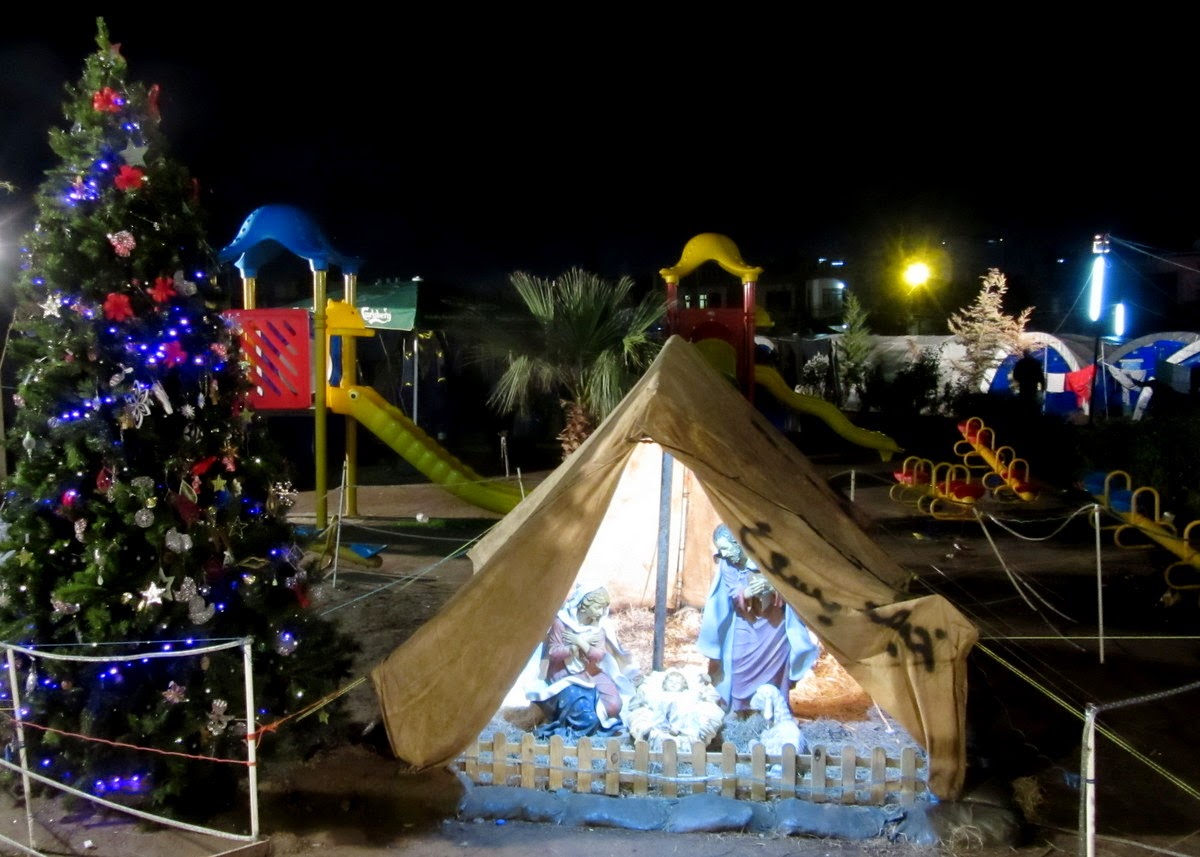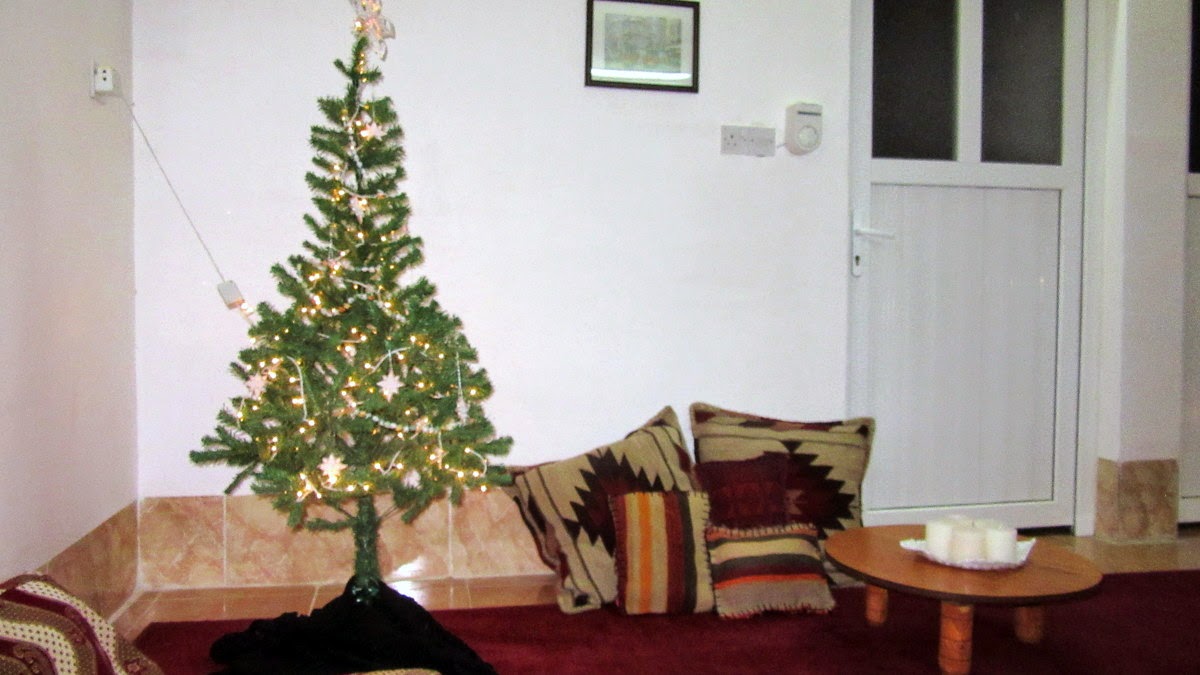Life in Iraq is settling into a fairly regular routine.
 |
| As you can see, the work week is generally Sunday-Thursday. This is complicated by the seminary, which runs Monday-Friday. To compensate for working on Friday afternoon, we try to take it a bit easy on Sunday afternoon. |
Most days Nathan wakes up around 7 and I wake up... later. We study Arabic together three mornings a week with a book and CD of drills. (Sometimes this is fun, and sometimes it's frustrating. Our language skills are improving and we can communicate a surprising amount, but when we don't have a native-speaking teacher correcting us and providing new input, and when most people are just as likely to speak Kurdish, Sureth, or English as Arabic, there aren't a lot of sink-or-swim language learning opportunities. So we stagnate, and flounder, and make silly mistakes, and gradually internalize verb conjugations.)
 |
| DIY Iraqi hipster Christmas tree star. |
After Arabic I eat breakfast, shower, check up on the internet world, and usually accidentally start working before 10 am because there are emails in my inbox and
I must read them now. This is okay, because I take breaks during the day to make Christmas decorations (or write blog posts). I love
working at home.
Two days a week, Nathan bikes to Mar Qardakh school, where he tutors students in English in the morning and then collaborates with teachers on writing assignments and grading in the afternoon.
On two afternoons a week, Nathan teaches English to students at St Peter's Seminary. In one three-hour block he teaches 28 seminarians in three 45-minute classes, with a half-hour break for tea before the last class.
We have choir practice two evenings a week, and we usually have an additional hour of practice prior to mass on Sunday evenings. Three nights a week is a big time commitment. So far it's been absolutely worth it, although the list of upcoming choir responsibilities for Christmas is a bit daunting.
--
Lots of things are not included in the schedule above. There are always meetings, and drop-ins, and sometimes social events. Nathan has started doing some one-on-one tutoring in addition to his class prep.
Also not included in the formal schedule are the little things that have nonetheless become routine. At least once a day (or night), we stop whatever we're doing (e.g. sleep), put on shoes, and walk outside because the electricity supply has switched from the neighborhood generator to the national grid, and the surge of power threw the circuit breaker. Nathan also flips a switch on every day or so to make sure that water is getting pumped from the line up into our roof-top tank, and turns it off once it's full. (Thanks, dear.)
Once or twice a week, we walk 10 minutes to one of the nearby grocer stands to get fresh vegetables and fruit. Most of our non-produce groceries come from nearby stores that sell basically everything (coconut milk? check!). Once or twice a month, we take a taxi to one of the supermarkets in Erbil to get fancy things like cheddar and Parmesan cheese, Kalamata olives, and bulk honey.
 |
| The Syrian heater is the Middle Eastern equivalent of a woodstove. It's cozy. |
Every weekend we clean, make granola, and listen to
wait wait don't tell me on podcast. We cook or eat leftovers, and we eat later: lunch at 1 or 2, dinner at 7 or 8.
During or after dinner on quiet evenings, we often watch an episode or movie from our inherited collection of pirated and legitimate DVDs. Now that it's getting chilly, this routine also includes lighting candles, firing up the kerosene-burning Syrian heater, and sometimes roasting chestnuts or popping popcorn on its cast iron top.
We're usually in bed by 10.

















